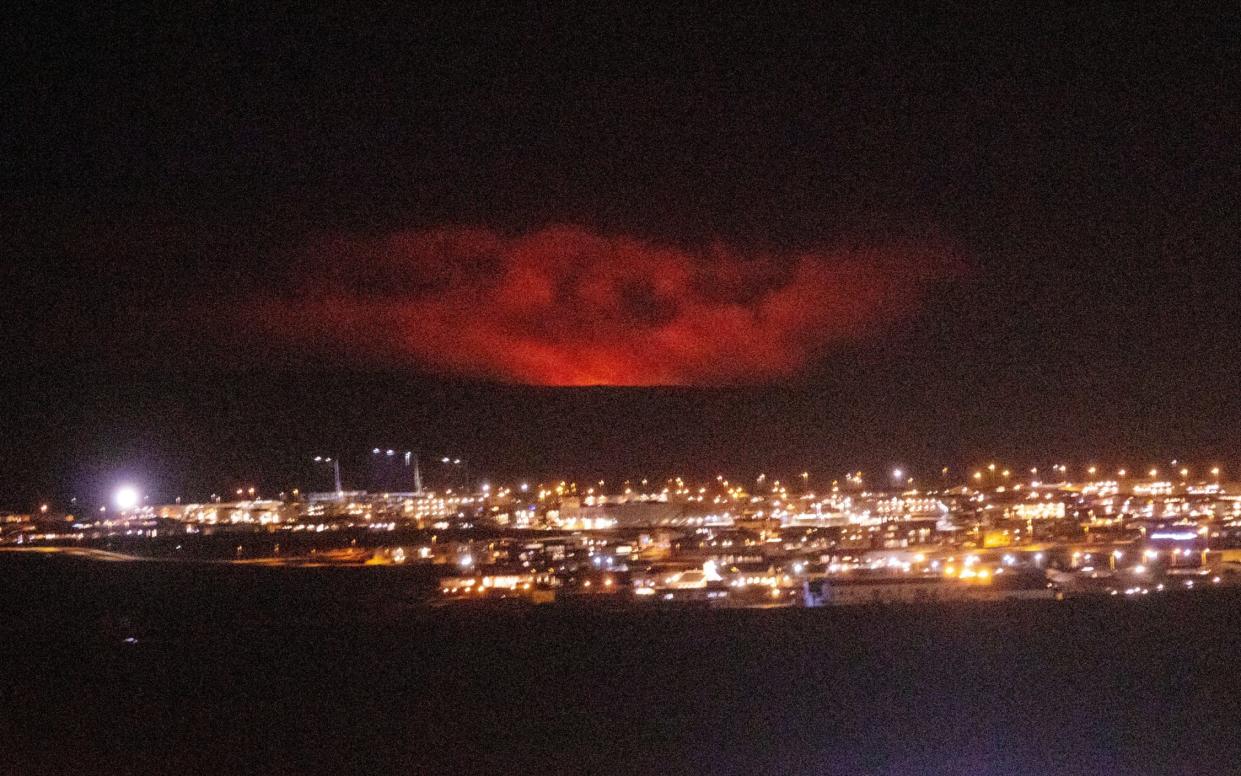Iceland: Volcano erupts near Reykjavik causing all air travel to be halted

A volcanic eruption began in southwestern Iceland near the capital Reykjavik on Friday following thousands of small earthquakes in the area in recent weeks, the country's meteorological office said.
The eruption occurred near Fagradalsfjall, a mountain on the Reykjanes Peninsula, located around 30 km (19 miles) south west of the capital.
The Icelandic Meteorological Office said all inbound and outbound flights from Keflavik airport in Reykjavik have been halted.
It is the area's first volcanic eruption in nearly 800 years.
"I can see the glowing red sky from my window," said Rannveig Gudmundsdottir, resident in the town of Grindavik, only 8 km (5 miles) from the eruption.
"Everyone here is getting into their cars to drive up there," she said.
More than 40,000 earthquakes have occurred on the peninsula in the past four weeks, a huge jump from the 1,000-3,000 earthquakes registered each year since 2014.
Photo I took tonight over the volcanic eruption at Reykjanes Iceland. We are monitoring the situation closely and as of now it is not considered a threat to surrounding towns. 🌋🇮🇸 #Iceland pic.twitter.com/6lTOG4xwjt
— Áslaug Arna Sigurbjörnsdóttir (@aslaugarna) March 20, 2021
Pictures on local media websites showed a bright red night sky.
A picture posted on Twitter by the IMO showed smoke rising from brightly glowing lava streams.
The eruption posed no immediate danger to people in Grindavik or to critical infrastructure, the IMO said, though officials asked people in the area to stay indoors and shut their windows to protect themselves from inhaling sulphur dioxode, a gas given off during volcanic activity.
#eruption #Reykjanes https://t.co/njqNMTukrB
— Icelandic Meteorological Office - IMO (@Vedurstofan) March 20, 2021
Unlike the eruption in 2010 of the Eyjafjallajökull volcano, which halted approximately 900,000 flights and forced hundreds of Icelanders from their homes, this eruption is not expected to spew much ash or smoke into the atmosphere, the IMO said.
Located between the Eurasian and the North American tectonic plates, among the largest on the planet, Iceland is a seismic and volcanic hotspot as the two plates move in opposite directions.
The source of the eruption is a large body of molten rock, known as magma, which has pushed its way to the surface over the past weeks, instigating the earthquakes.
The number of quakes had slowed down in recent days, however, leading geologists to say that an eruption would be less likely.
A helicopter with scientific personnel aboard had been scrambled to observe the eruption, the IMO said.

